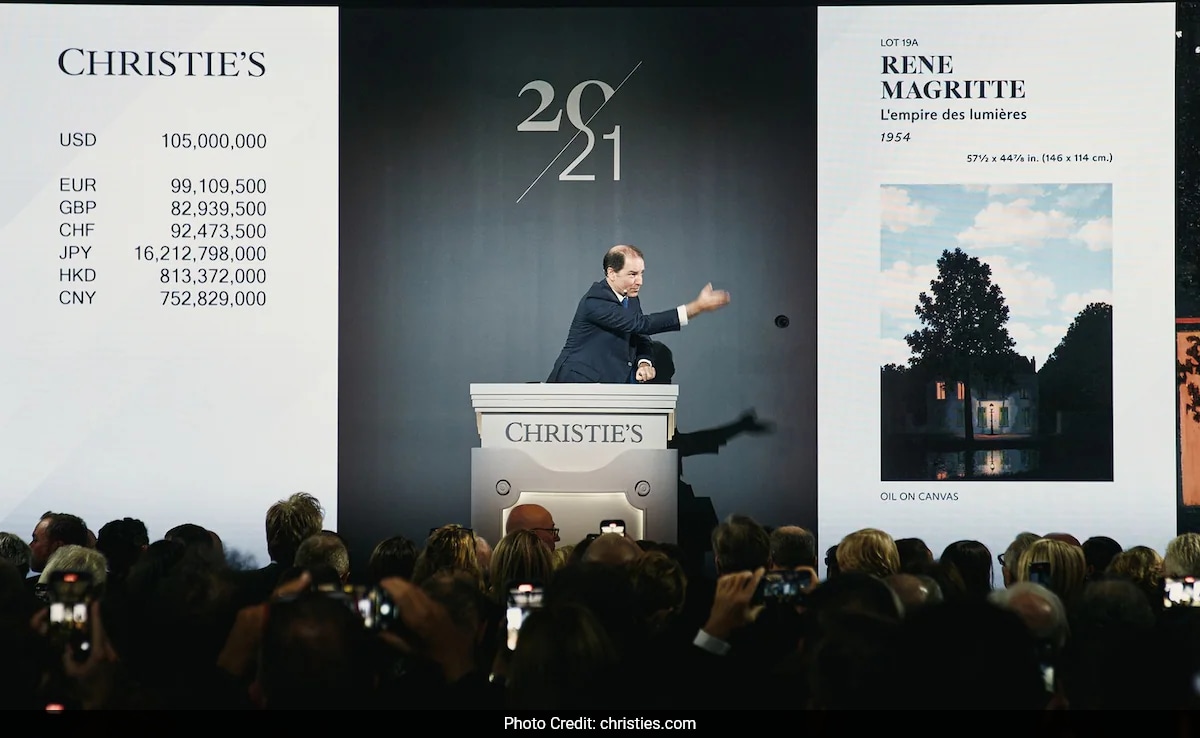A painting by the ‘Master of Surrealism’ Rene Magritte has smashed the auction record for any of his works by selling for an astonishing $121 million at a Christie’s auction in New York on Tuesday.
The piece of art, titled ‘L’empire des lumieres’ or ‘The Empire of Light’ brilliantly juxtaposes night and day. While Magritte depicts the skies above as a bright, sunny, spring-summer day, he paints a grim, damp, suspenseful, almost-eerie streetscape covered in inscrutable darkness and shadow; with a solitary street lamp lighting up the side facade of what seems like a traditional English manor and its reflection in a puddle of water left after a recent drizzle.
The longer and closer one looks at the painting, the more one gets drawn to its surreal nature – the artist’s intricate play with lighting and the mysterious darkness that envelops the manor.

Photo Credit: christies.com
The auction house – Christie’s – called the artwork the “crown jewel” of its previous owner – late American interior designer Mica Ertegun. It also said that the 1954 oil-on-canvas painting sold for $121,160,000 – “setting a new world record for the artist and for a Surrealist work of art at any auction”.
The piece of art – one of the largest paintings among 27 works, all titled ‘L’empire des lumieres’ – is renowned among 20th century art experts for its scale, condition and subtle details. The auction house said that the winning bid far exceeded the painting’s $95 million estimate.
Some of the other paintings auctioned included two other works by Magritte “La cour d’amour” and “La Memoire,” which sold for $10.53 million and $3.68 million, respectively. The auction also featured artworks by renowned artists Ed Ruscha and Max Ernst. Another sizeable bid – over $19 million – was made for the painting ‘A Still Life’ by 87-year-old British artist David Hockney.
According to Christie’s, Rene Magritte (1898-1967) explored nocturnal landscapes bathed in daylight across 17 unique paintings throughout his career. The 1954 example from Mrs. Ertegun’s collection reflects the artist’s technical mastery and penchant for making the familiar uncanny. It is considered Magritte’s finest work from the series and the first time he introduced a body of water into the mysterious street scene.





